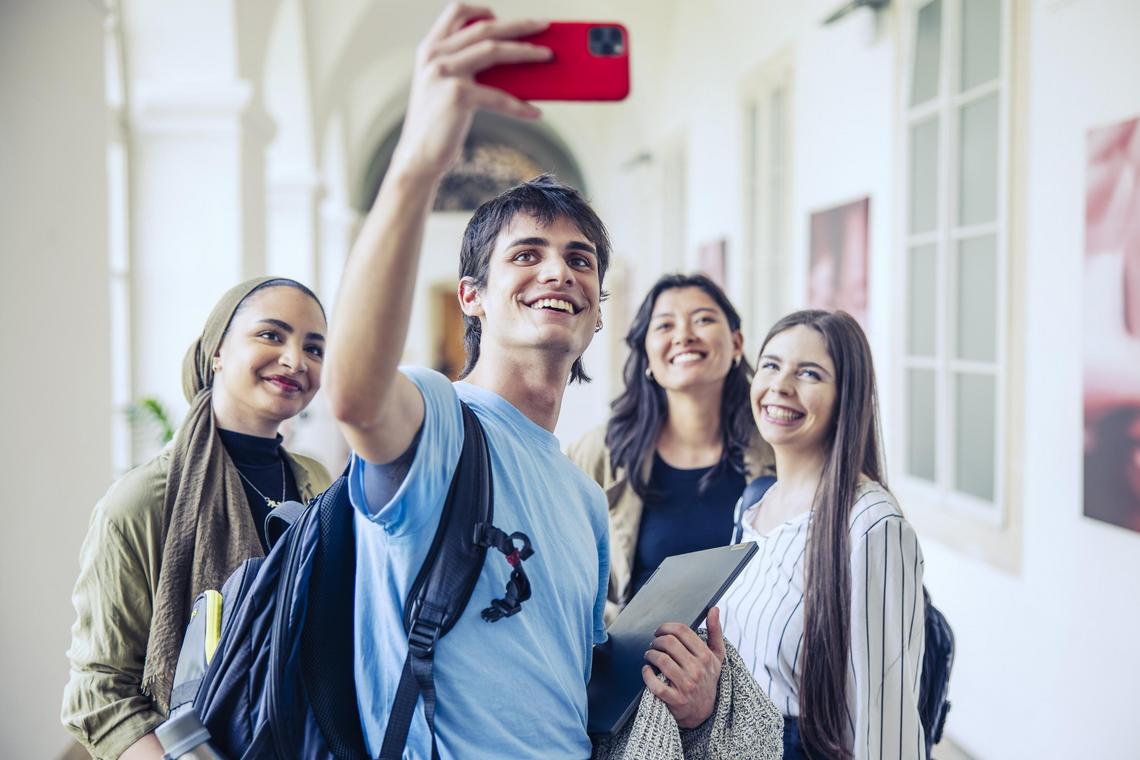A recent study by IMC Krems shows the influence of social media and influencers on purchasing decisions. The research was conducted by students of the study programme Unternehmensführung as part of the Market Research course under the supervision of Dr. Cordula Cerha. The study not only offers practical insights into consumer behaviour but also highlights the research skills of IMC students in the fields of marketing and consumer behaviour.
Press
Clicked, liked, bought?

Scepticism towards influencer recommendations
The online survey of 277 people aged between 14 and 58 living in Austria showed that influencer marketing has only limited effect. Consumers rely primarily on personal recommendations and independent research. Although traditional advertisements and sponsored posts generate attention, two-thirds (67%) of respondents consider product use by influencers to be untrustworthy.
Direct purchases via social media remain rare: the majority (81%) research information on products they discover on social media online before buying. In addition, 43% of respondents consider in-store advice, and 42% trust recommendations from friends or family. The quality of influencer products is viewed particularly critically – 76% express doubts about it.
Which platforms have the greatest influence?
According to the study, Instagram and TikTok are the leading platforms for purchase decisions. Not only do they offer the best discounts, but they are also the most used channels for sharing experiences. Pinterest, on the other hand, serves as a source of inspiration, while YouTube and TikTok are used primarily for product comparison.
Friends more important than influencers
One of the study’s key findings is that 86% of respondents trust the recommendations of friends more than those of influencers. Only 6% say they trust influencers more than their personal network. Despite their wide reach, influencers therefore have only limited influence on purchasing decisions.
IMC research adds to the findings
The findings of the IMC student study add to the more in-depth research conducted by Prof.(FH) Dr. Martin Waiguny, Academic Head and Professor of Marketing and Consumer Behaviour at IMC Krems: “As the student study shows, friends are more influential than influencers, but it is also possible to develop a so-called parasocial relationship with influencers. This means that influencers are seen almost in the same way as friends, which increases their effectiveness.” In another experimental study with IMC alumna Ornella Zy-Tin Pham, Martin Waiguny examined the effect of product placements in visual social media, particularly on Instagram. The study analysed how different types of placements (subtle vs. prominent) and forms of presentation (image vs. video) influence the perception of the brand, the influencer and the Instagram post. Here, too, it is shown that for static visuals, prominent placement has a positive effect on the attitude towards influencers, and this positive attitude is transferred to the placed brand. This means that the recommendation itself can even have a positive effect on the influencer’s image – in addition to the parasocial principles.
Conclusion: social media has an influence, but trust remains crucial
The studies show that social media plays a central role in the purchasing process, but trust remains the key factor. Consumers rely on independent research and personal recommendations – influencers have a hard time convincing consumers as credible purchasing advisors. However, if parasocial relationships have been established with influencers, they can still be very effective. The practical research conducted by IMC Krems is therefore making a valuable contribution to the discussion on the effectiveness of social media marketing.
